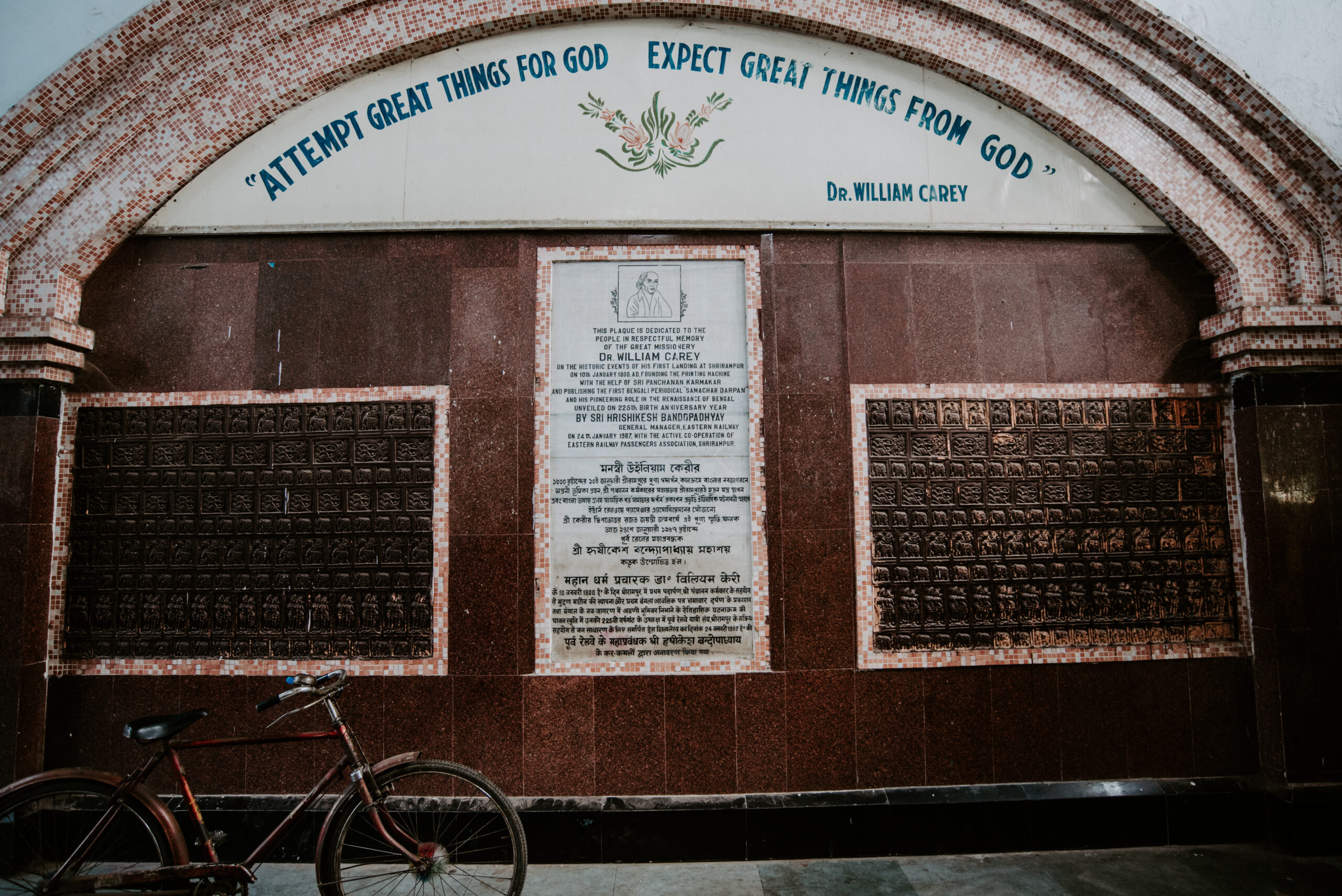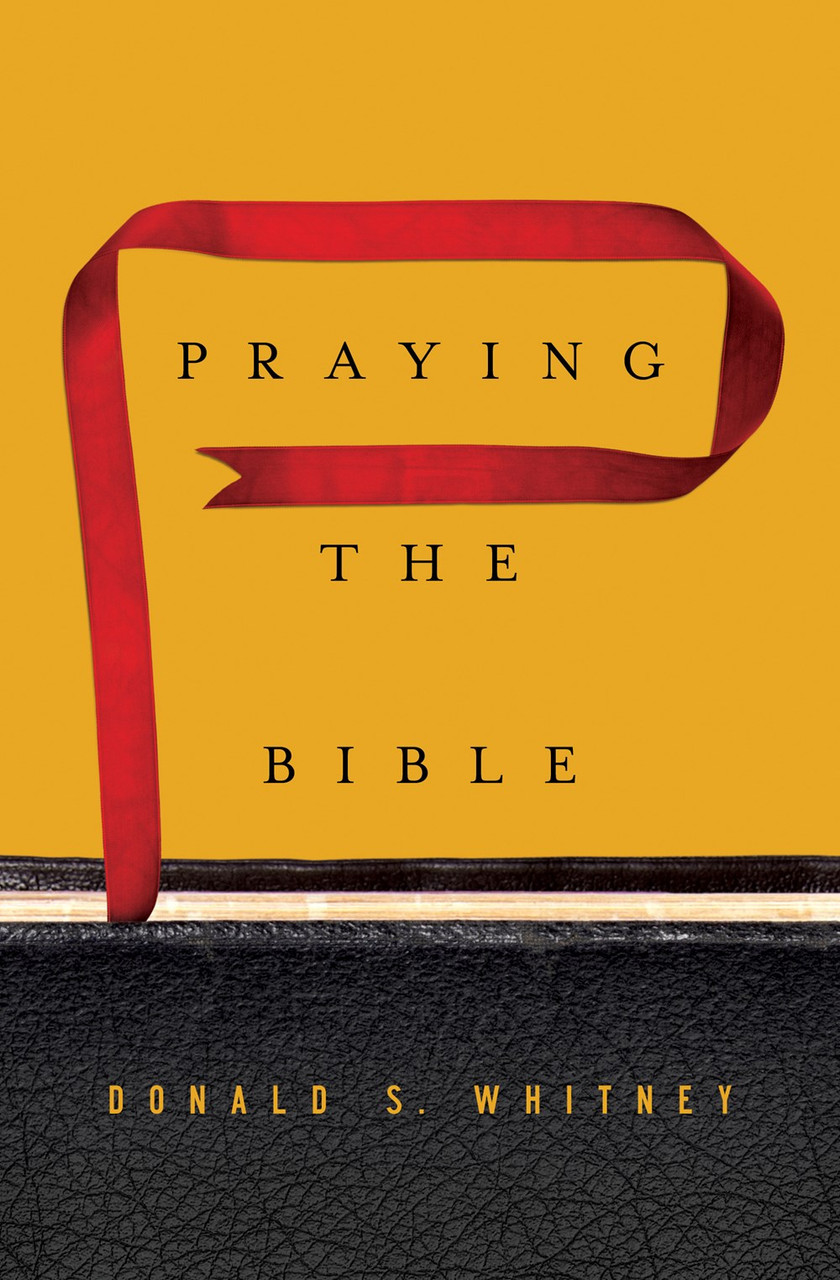
Four years after having sent William Carey (1761-1834) to India, the Baptist Missionary Society sent John Fountain to aid Carey and send a report of what he found. Here’s part of his report, dated November 1796:
-
- [Carey] labours in the translation of the Scriptures, and has nearly finished the New Testament, being somewhere around the middle of Revelations. [sic] He keeps the grand end in view, which first induced him to leave his country, and those Christian friends he still dearly loves.
1
William Carey, a modern missionary pioneer who endured much hardship, persevered in faithfulness until the age of 73. His life and ministry would change the modern world.
How did he manage faithfulness in the Christian life in challenging times—and at a time when few had crossed-cultures to reach the unreached?
From his earliest days of missionary activity until the end of his life Carey kept the grand end in view. So, what is this grand end?
The Grand End
While it is right to say that the entire Bible points to and reveals the grand end, I believe there is one verse that sums it up well.
In Galatians 3:8, the apostle Paul says, “And the Scripture, foreseeing that God would justify the Gentiles by faith, preached the gospel beforehand to Abraham, saying, ‘In you shall all the nations be blessed.’”
Here, Paul explains that God has always had the salvation of the nations in mind. From the beginning, he conveyed to Abraham his plan.
In what is often called the centerpiece of the first five books of the Bible, God says to Abraham,
- Go from your country and your kindred and your father’s house to the land that I will show you. And I will make of you a great nation, and I will bless you and make your name great, so that you will be a blessing. I will bless those who bless you, and him who dishonors you I will curse, and in you all the families of the earth shall be blessed. (Genesis 12:1-3 ESV)
At the age of 75, Abraham obeyed God, and he and his wife left their country.
After a period of travel and time, God met with Abraham, took him outside and said, “Look toward heaven, and number the stars, if you are able to number them.” Then he said to him, “So shall your offspring be.” And [Abraham] believed the LORD, and he counted it to him as After a period of travel and time, God met with Abraham, took him outside and said, “Look toward heaven, and number the stars, if you are able to number them.” Then he said to him, “So shall your offspring be.” And [Abraham] believed the LORD, and he counted it to him as righteousness (Genesis 15:5-6). God then made a covenant with him promising that he would be “the father of a multitude of nations” (Genesis 17:5).
In this event, Paul tells us in Galatians 3:8, the gospel was preached to Abraham.
Yet, we might think, “How is this possible, as the name of Jesus Christ is not mentioned?” In short, the gospel preached to Abraham was God’s promise to him that through Abraham and his offspring, all the nations would be blessed. Or, simply that Gentiles, non-Israelites, will be justified by faith.
In Romans 4, Paul explains that “the purpose was to make him [Abraham] the father of all who believe” and that “the words ‘it was counted to him’ were not written for his sake alone, but for ours also. It will be counted to us who believe in him who raised from the dead Jesus our Lord, who was delivered up for our trespasses and raised for our justification” (Romans 4:11, 23-25). And, again, Paul explains that the gospel was “promised beforehand through his prophets in the holy Scriptures, concerning his Son” (Romans 1:2-3).
The gospel has always had the doctrine of justification at its center. Reconciliation of sinful humanity to a holy God, and the removal of his just condemnation, is the core of gospel truth.
Yet, to be gospel-centered is to recognize that the gospel was intended for Abraham in the Old Testament-past as a forward looking, faith requiring message, revealed with the miraculous advent, perfect law-abiding life, atoning death, and victorious resurrection of Jesus Christ, that we are also to receive now as a backward-looking, faith requiring message, and we are to take that message to the nations of earth.
The gospel preached to Abraham, though not revealed in full, was nevertheless received with justifying faith and pointed to a future fulfillment among peoples, including us, from every tribe, tongue, and nation. This future fulfillment is the “grand end” William Carey kept in view.
A Plodder, Pioneer, and Proclaimer
Carey spent just over 40 years in India. As he kept the grand end in view, three virtues describe well his ministry.
A Plodder
Carey’s virtue as a plodder allowed him to see God’s faithfulness strengthen him when there was every reason to give up.
Carey and his family arrived in Bengal and endured immediate hardship. They lived in unhealthy conditions in a shack outside of Calcutta, and they suffered from hunger and dysentery.
In the first year, the Careys lost their 5-year-old son, Peter, to illness. This tragedy, along with other trials, wreaked havoc on both Careys, especially his wife. Understandably, Dorothy Carey struggled, and this led to her retreating from reality and that led to many more trials until her death in 1807.
How did Carey persevere? He trusted in God, and he went forward, plodding by faith.
Carey wrote to his sisters, “I am very fruitless and almost useless, but the Word and the attributes of God are my hope, my confidence, and my joy, and I trust that his glorious designs will undoubtedly be answered.” 2
One of his biographers recounted, “[I]nvinicible patience in labour, and uninterrupted constancy, secured his triumph over every obstruction. He once said … ‘[I]f anyone should think it worth his while to write my life … If he will give me credit for being a plodder, he will describe me justly. Anything beyond this will be too much. I can plod. I can persevere in any definite pursuit. To this I owe everything.” 3
A Pioneer
Carey’s virtue as a pioneer allowed him to see God’s faithfulness sustain him when he was doing things no one had done before.
The first 7 years brought little spiritual fruit. Writing to his sister in 1798, Carey said, “I have however no news to send … at best we scarcely expect to be anything more than Pioneers to prepare the way for those who coming after us may be more useful than we have been. I know success depends entirely upon the blessing of God, and there in him I will trust and not be afraid. The principle thing we see is the translation of the Bible into the Bengal language.” 4
Seeing the translation of the Bible into the native languages was a primary plank in Carey’s platform for evangelizing India. As Timothy George notes, in a country of syncretistic religions—Isalm and Hinduism plus folk expressions of both, Carey held fast to his conviction that “only the Bible could show the uniqueness of Christ.” 5
In 1797, he would see the first draft of his translation of the NT into Bengali, which he would revise 8 times before he died. By 1807 he published a Sanskrit NT.
A Proclaimer
Carey’s virtue as a proclaimer allowed him to see God’s faithfulness as sufficient to bear fruit according to God’s plan.
While focused on translation, once he learned the language, Carey would regularly preach in open-air markets. He took encouragement from the fact that even though there was no response, the name of Jesus is “no longer strange in this neighborhood.” 6
In 1799 Carey moved his family to Serampore to join with two other missionaries, Joshua Marshman and William Ward. Known as the Serampore Trio, these three established a new base called the Serampore Mission—and their friendship and joint missionary service was a key to their survival and success in proclaiming the gospel.
From this home base, Carey also impacted the Indian culture. Early he observed with horror the practice of suttee, where following her husband’s death, the wife was expected to throw herself on top of her husband’s funeral pyre. Carey advocated against this practice until he saw, in 1829, the Governor outlawed the practice. He also contributed several other advancements to Indian understanding of science, engineering, medicine, publishing, agriculture, education, and astronomy.
The Blessing of the Nations
By keeping the grand end in view, William Carey changed the evangelical world and launched the modern missions movement. At his death, as an indication of his sole focus, he requested only a line for his tombstone from one of his favorite hymns by Isaac Watts, “A wretched, poor, and helpless worm, on thy kind arms I fall.”
Despite earthly fame and historic legacy, Carey departed in faithfulness, keeping Jesus in view, the greater Grand End, and the blessing of the nations was the result.
*This article is adapted from Jason G. Duesing’s recent chapel message: “Keeping the Grand End in View: The Life and Ministry of William Carey for the Blessing of the Nations,” a “Great Lives” lecture at Midwestern Seminary and Spurgeon College. You can watch the full lecture below.
1. “From Mr. Fountain to Mr. Fuller,” November 8, 1796, in Eustace Carey, Memoir of William Carey, D.D. (Jackson and Walford, 1836), 286, italics added.
2. William Carey to Mary Carey and Ann Hobson, December 22, 1796 in Terry G. Carter, ed., The Journal and Selected Letters of William Carey (Smyth & Helwys, 2000), 249.
3. Eustace Carey, Memoir, 623.
4. William Carey to Ann Hobson,” November 27, 1798 in Timothy D. Whelan, Baptist Autographs in the John Rylands University Library of Manchester, 1741-1845 (Mercer, 2009), 91-92.
5. Timothy George, Faithful Witness (New Hope, 1991), 111.
6. Timothy George, Faithful Witness,113.
How does God's Word impact our prayers?

God invites His children to talk with Him, yet our prayers often become repetitive and stale. How do we have a real conversation with God? How do we come to know Him so that we may pray for His will as our own?
In the Bible, God speaks to us as His children and gives us words for prayer—to praise Him, confess our sins, and request His help in our lives.
We’re giving away a free eBook copy of Praying the Bible, where Donald S. Whitney offers practical insight to help Christians talk to God with the words of Scripture.

